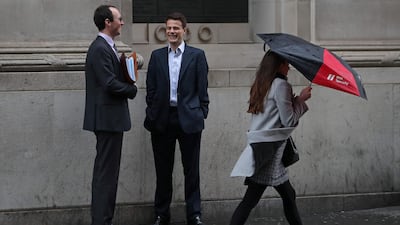Women will have to wait almost a century for the same economic, political, health and educational opportunities as men, taking more than a lifetime to achieve equality, according to the World Economic Forum.
In terms of the "economic opportunity gap" it will take women 257 years to achieve parity with the other gender, even worse than the 202 years predicted for the economic sub-category in 2018, according to WEF's Global Gender Gap Report 2020.
This is largely because of too few women in leadership roles, wage stagnation and low labour force participation, the report adds.
“To get to [economic opportunity] parity in the next decade instead of the next two centuries, we will need to mobilise resources, focus leadership attention and commit to targets across the public and private sectors,” said Saadia Zahidi, head of the Centre for the New Economy and Society at WEF.
“Business-as-usual will not close the gender gap – we must take action to achieve the virtuous cycle that parity creates in economies and societies.”
The forum has pledged to at least double the current percentage of women participants at its annual meeting in Davos, Switzerland, by 2030.
WEF’s report, which began in 2006, studied 153 countries, tracking their progress across on gender equality across the four main themes of economic participation and opportunity, education attainment, health and survival, and political empowerment.
Iceland ranked as the world’s most gender-equal country for the 11th consecutive time followed by Norway, Finland, Sweden and Nicaragua rounding out the top five globally.
Democratic Republic of Congo, Syria, Pakistan, Iraq and Yemen ranked the lowest.
The top five most-improved countries in the overall index this year are Ethiopia, Spain, Mali, Albania and Mexico, with a "substantial" increase in women's presence in political institutions, the WEF report said.
Countries which showed the most improvement in women’s economic participation and opportunity are Cape Verde, Mali, Nigeria, Sierra Leone and Indonesia.
The overall gender gap in the Middle East and North Africa can be closed in 140 years, the report said.
The UAE ranked second in the Mena and 120 globally in terms of gender equality, according to the report.
No country to date has yet achieved full gender parity.
“At the present rate of change, it will take nearly a century to achieve [overall] parity, a timeline we simply cannot accept in today’s globalised world, especially among younger generations who hold increasingly progressive views of gender equality,” Klaus Schwab, founder and executive chairman of WEF, said.
The 99.5-year period estimated in this year's report is actually an improvement from the 108-year estimate last year, largely due to the participation of women in politics.
WEF does offer some hope for more accelerated progress through what it calls the “role model effect.” In many countries, high political empowerment corresponds with high numbers of women in senior roles.
There are some signs of that effect, as Kuwait appointed Mariam Al Aqeel as its finance minister yesterday, making her the first woman to hold that position in the Arabian Gulf.
Traditionally male-dominated industries are also realising the importance of achieving gender equality to progress.
The International Air Transport Association said that 59 airlines have committed to the ‘25 by 2025’ campaign, which seeks to address the problem of gender imbalance in the aviation industry.
The initiative will see airlines commit to increasing the number of women in senior positions in airlines by either 25 per cent against currently reported metrics or to a minimum representation of 25 per cent by 2025.
Middle East airlines including Etihad Airways and Gulf Air have signed up to the global programme.


